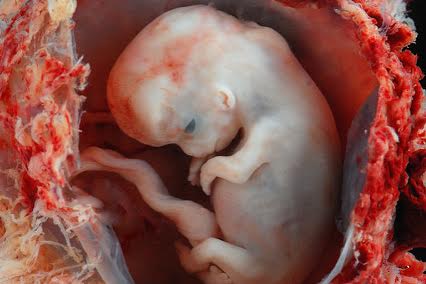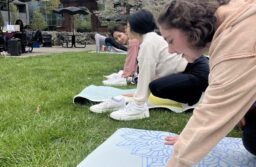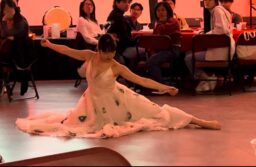
Photo courtesy of Lunar Caustic, Flickr
On Wednesday evening, the Women’s Center sponsored a “When People Can’t Have Abortions” discussion covering the lack of abortion access across the nation. Nat Dahl, the Women’s Outreach Coordinator opened the discussion by introducing Dr. Amanda Roberti who presented a “My Choice Series” PowerPoint presentation.
Dr. Roberti teaches Political Science in the Salameno School of Humanities and Global Studies school covering gender and politics as well as public and abortion policies.
Dr. Roberti covered key aspects surrounding abortion discussions such as the Roe v. Wade dispute in 1973, Targeted Regulation of Abortion Providers (TRAP) laws, and Crisis Pregnancy Centers (CPC). “Abortion access has always been stratified,” Dr. Roberti stated. Inequality and dependence on marginalized identities cause abortion access to remain stratified in today’s society.
During Dr. Roberti’s discussion on TRAP laws questions were answered such as, “Why are clinics closing?” Clinics close due to the effects of TRAP laws around the nation.
Laws put in place by the government as well as meeting the same standards as operation offices are a few reasons TRAP laws cause clinics to close. Data showed results from Texas presenting an estimate of 40 clinics during the pre-HB2 period and only 2 remaining clinics following the HB2 TRAP law effects.
CPC’s caught much attention from the attendees during the event prompting a profound discussion. Crisis Pregnancy Centers are non-medical clinics which function with under-qualified doctors who persuade clients not to continue with their abortion decisions. Many CPC’s use care-based or religious language in their clinic names in order to grab the attention of any incoming clientele.
Dr. Roberti provided information that showed approximately 60 CPC clinics are located in New Jersey. CPC websites also provide false information on post-abortion issues such as mental health issues, preterm birth, and breast cancer. Dr. Roberti informed the group that the locations of CPC’s are in fact “strategically located” near college towns and admissible clinics.
Junior Fin Lumino attends the many events sponsored by the Women’s Center and reflected on the discussion after the Q&A. “It is always good to hear from professionals,” Lumino commented.
Roberti offered personal interests towards the discussion of abortion access. “I enjoy exploring the reproductive justice issues from a legal and political perspective,” Dr. Roberti stated.
“When People Can’t Have Abortions” discussion saw great turn out as the Women’s Center welcomed about 15 attendees Wednesday evening. Dahl announced that there will be more discussions based on abortion will be occurring in the near future.
The Women’s Center invites students to visit and participate in the future events held during the rest of the Spring semester.
kbruno4@ramapo.edu





